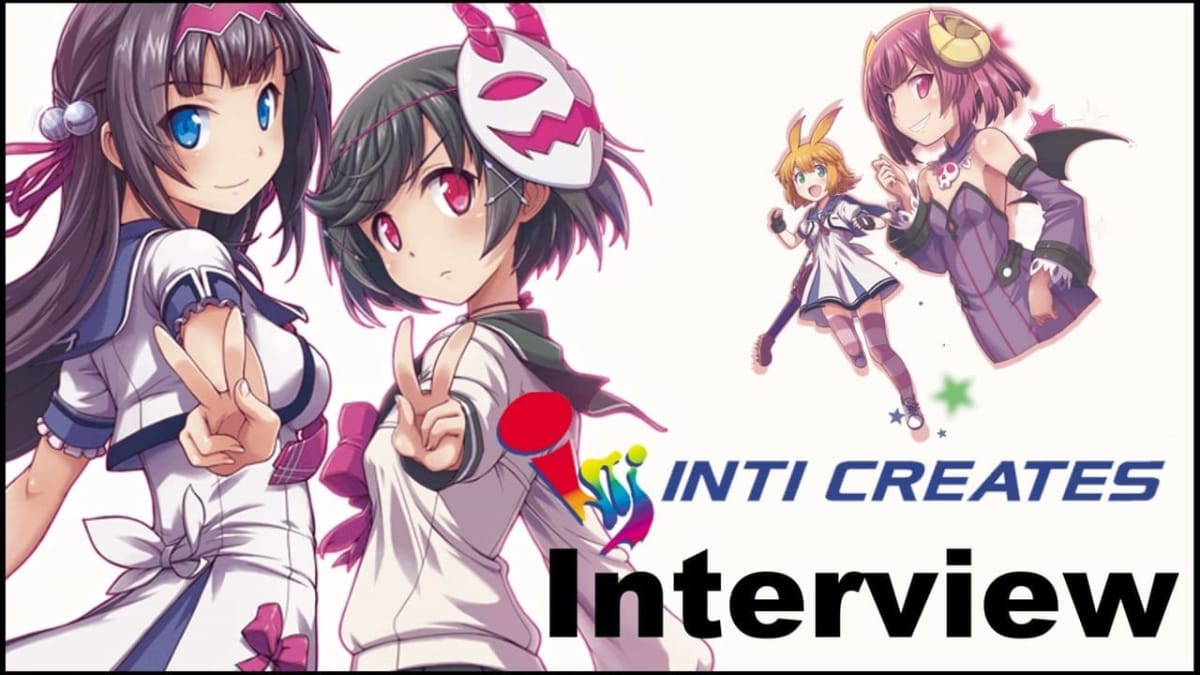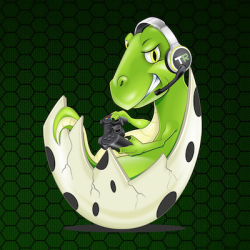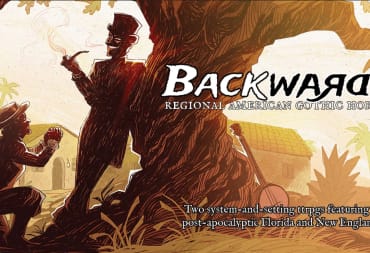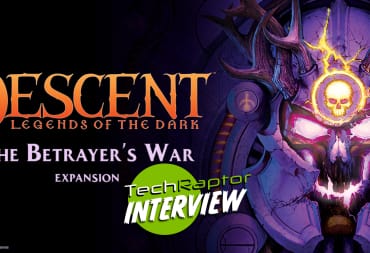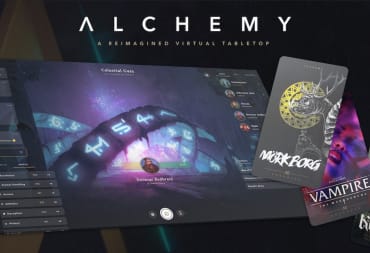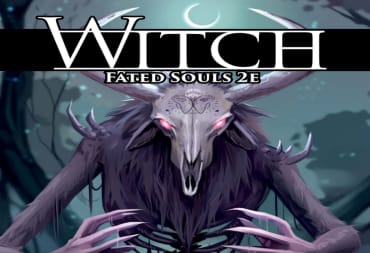Censored Gaming has recently managed to speak to Inti Creates' Matt Papa, producer of Gal*Gun: Double Peace and Azure Striker Gunvolt. With Censored Gaming covering topics revolving around censorship and localisation, a big focus was put on these specific areas of gaming.
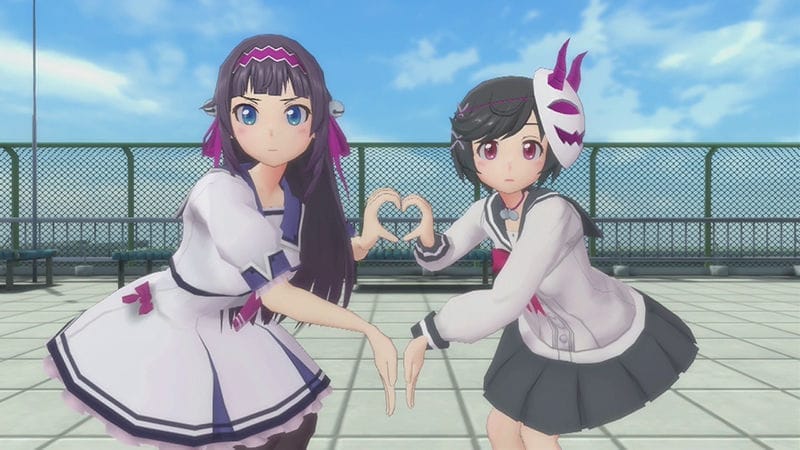
Here's what they had to say!
Censored Gaming: How would you describe your personal views towards censorship in video games?
Matt: I work alongside amazing creators on a daily basis, so the idea of their work being presented to parts of the world in a way they did not originally intend bums me out, especially when they are not deemed necessary by any sort of rating board or other governing authority. If a rating authority tells you that you need to remove something in order to get a rating that isn't 18+/Adults Only, that's a completely different story, since those changes essentially need to be made for your game to be able sell in a certain region. Small changes such as removing/changing a character's age for example, should generally be accepted if that's what it takes to get the rating you need. However, it's fundamental changes are made to the characters, story, or gameplay based on preconceived notions that we as westerners want or don't want something that are a lot more complicated to me.
Censored Gaming: When compared with movies and books, games appear to have always been assigned a lower threshold for what is seen as acceptable. Do you believe a distinction between these mediums should be made?
Matt: No, not really. I don't think video games should be held to a different standard. If a certain level of violence and sex is acceptable in TV, film, or books, I see no reason why that same level should not be acceptable in video games too.
Censored Gaming: Occasionally games will have certain sexual themes toned down when localized outside of Japan, with this sometimes being described as due to "cultural differences." What are your thoughts on this reasoning? Do these "cultural differences" exist?
Matt: For some people, I'm sure they do. One culture can be very different from one another, but at the end of the day, everyone is their own individual and I feel that they will decide what is acceptable to them based on their own personal beliefs. There are people in Japan who are not OK with the level of sexual content in some of their games, and people in America for example that are not happy about those things being censored for them. I think more than catering to a perceived cultural norm, present the product to its target audience. There are people who like sexual content everywhere, and people who hate it everywhere. It's up to the publishers to decide how they will present their product.
Censored Gaming: PQube recently brought Gal*Gun: Double Peace to Western shores with all of the original content intact. As the game's producer, did you have any involvement in this unedited release?
Matt: You can personally blame me for getting Gal*Gun Double Peace to point where it would get a western release, hehe. From the I started at Inti Creates, I constantly pushed internally for a western release for the game, and finally, once it came out in Japan, I reached out to western gamers and gauged interest in the project. Needless to say, we were all blown away by the sheer amount of positive feedback we received. That unbelievable support was the last piece I needed to convince the team to do a western release. Once we starting looking for a publisher, PQube immediately reached out to us and expressed such a passionate and genuine desire to work on the game with us. Our goal was the same: Localize the game for a western release that did not in any way censor the original Japanese version. That is exactly what we did. I was deeply involved with the project both as a producer and the localization director, so I'm extremely happy that people loved the game so much!
Censored Gaming: How would it personally make you feel if Inti Creates' games had changes made during localisation, which toned down provocative content found in the original material?
Matt: If these changes were required to obtain the rating we needed or required to fall within the bounds of a country's laws, then I take no issue with that. Sometimes small tweaks are made in localization to better fit the narrative in the localized language too, and those are fine. If these changes were made for no discernible reason, especially if they fundamentally changed the story or gameplay, obviously that's a different story.
Censored Gaming: Do you have any comments regarding the West's 'depiction of women in gaming' controversy, which has stopped games, such as Dead or Alive Xtreme 3, from reaching our shores?
Matt: I will say this much. There are so many factors that go into releasing a game; way more than I ever realized before joining the industry, so I will not make a judgement as to why a company I don't work for decided to not release something. Loud criticisms from people online may seem like they play a huge role, but at the same time there could be numerous factors that we don't know about playing a role behind the scenes. So unless I work for that company, I don't feel that I have the information necessary to decide if backlash was the sole reasoning for games not getting released.
Censored Gaming: How should the localization process be handled? What is the ideal mindset for localizers to have, when bringing Japanese games to an overseas audience?
Matt: I'm flattered that you would ask me this, but I'm not the authority on localization, so I can only tell you how I personally handle the localization process. For me, my main goal is to capture the spirit of the original material in every way possible, no matter what language it's in. However, this is called localization for a reason, since localizing a game doesn't mean simply translating the game's text as-is and calling it a day. In Gal*Gun Double Peace for example, the game is filled to the brim with Japanese wordplay, puns, jokes, references, memes, and other funny tidbits. A translation would simply be turning those Japanese words in English words, and you'd have a game full of humor that makes no sense to an English speaking westerner. This is where localization comes in. If there's a joke or reference that essentially nobody outside a small group of Japanese players would get, rather than putting in a reference that basically nobody in the west would understand, you take the spirit of the material and express that in a way that English speakers would understand and appreciate. Take Kurona, the demon girl from Gal*Gun Double Peace whose entire speech pattern in the Japanese version incorporates replacing the Japanese word "desu" (the verb for "is"; used in a lot of sentences) and writing it in her script as DEATH (reading the word with an Japanese pronunciation sounds identical to the word "desu"). Now, as you can imagine, this would make no sense if left as is, and "death" isn't exactly a very versatile word either. I could have taken the easy route and just translated her sentences using the word "desu" as "is" in English, but that wouldn't capture the spirit of the original material. So, wherever it made sense in the English script, she expresses herself using the word "hell". It's related to demons and the like, and it's quite a versatile word ("what the hell?", "that's one hell of an idea!", "that's cool as hell!"), so that's what I went with. I'm certainly not gonna claim it's the bonafide best way to do localization, but that's how I do it, and I hope people enjoy my work.
Censored Gaming: Have you got any predictions for how Western localisation and censorship may change in the future?
Matt: Honestly, I'm more confident in the state things they are today than they were, say, five years ago. I'm not sure we would have been able to get away with releasing Gal*Gun 1 during the PS3/360 era when it came out. You see way more games like that now on both consoles and Steam nowadays, so I think somewhere along the line things shifted and Japanese games with more sexual content than we were used to seeing back in the day are making their way west more now than they ever did before. As long as us westerners continue to want these games, and more importantly, buy these games, I think more and more Japanese developers will take notice and take a chance on releasing their games outside of Japan. As a Japanese company, localizing and publishing a game outside of Japan, especially if you are doing a physical version, is both time consuming and costly, so if a company doesn't see a market for their game, they probably won't risk losing money on the project. I think us westerners are doing an awesome job of expressing our desire for sexy Japanese games, so keep that up and keep supporting the devs and publishers who make it possible to get these games in your hands.
Censored Gaming: And lastly, as a bonus question – what is your favourite video game?
Matt: I have a bonafide Top 3 that has held true since the PS1 era of games. #1 - Mega Man 2, #2 - Final Fantasy Tactics, #3 - Super Mario RPG
Thank you for your time and interview!
Have a tip, or want to point out something we missed? Leave a Comment or e-mail us at tips@techraptor.net
